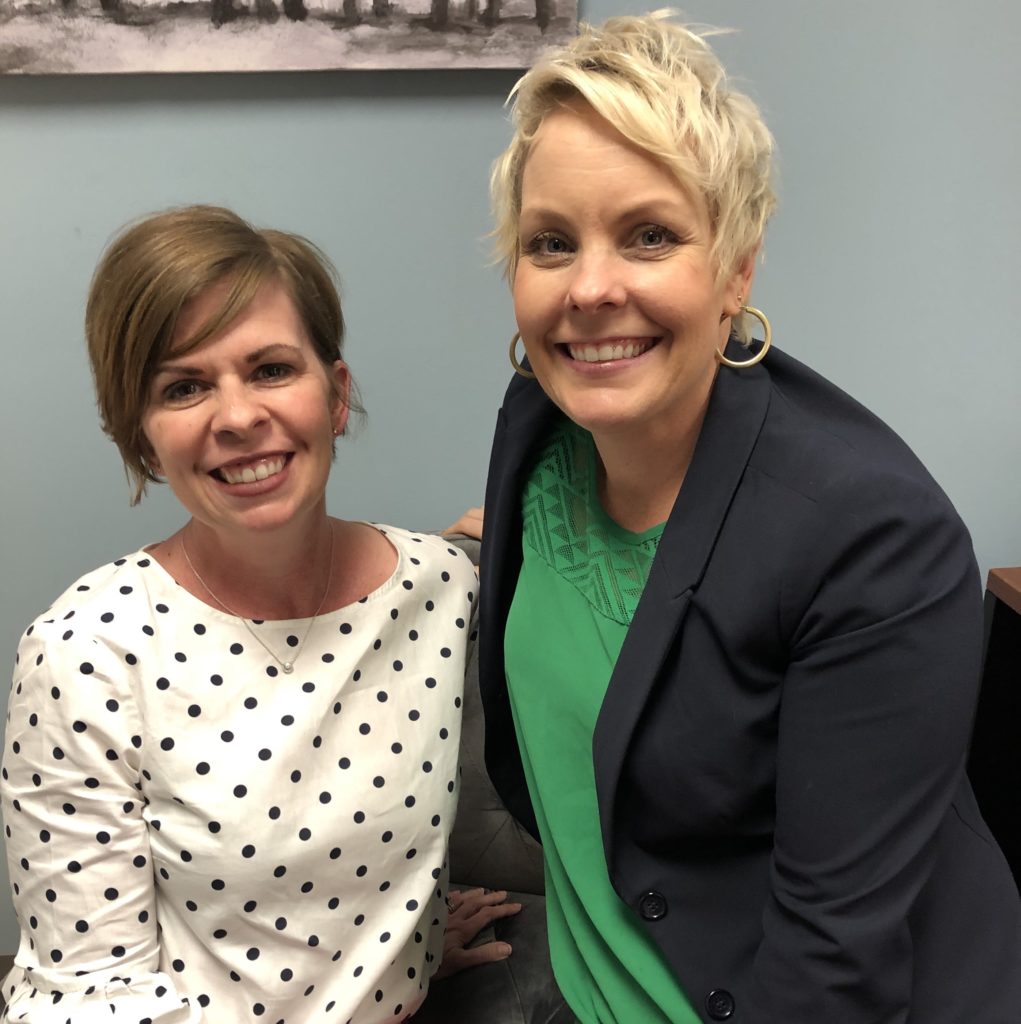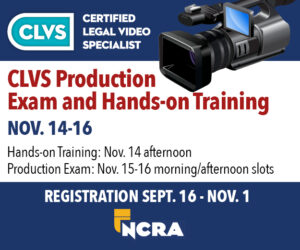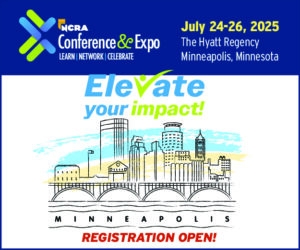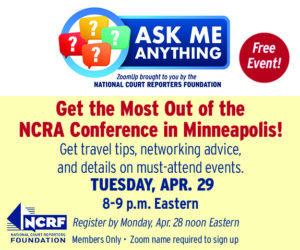To mark the 2019 Celebrate Certification Month, all through May we will take a look in each week’s JCR Weekly at the certifications offered by NCRA.

NCRA’s Registered Diplomat Reporter (RDR) is recognized as the Association’s most prestigious certification because it is a direct reflection of the commitment to advancement in a court reporter’s career and professional growth. RDRs are the elite members of the court reporting and captioning field when it comes to experience and knowledge of the latest technology, reporting practices, and professional practices. To date, less than 500 members of NCRA hold the certification.
Earlier this month, Candace Covey, CRR, and Lisa Mayo, CRR, added the RDR certification to their dossiers. Both women are official court reporters for a federal court in Memphis, Tenn., and now represent two of the only three NCRA members who hold the RDR in that town.
“I earned the CRR (Certified Realtime Reporter) to prove to myself I was competent to offer realtime to clients,” said Covey. “I earned the RMR just to prove to myself I was fast enough to be in court. For me the RDR was just a challenge and the next step in the progression,” she said.
“The biggest reason for taking this test was knowing there was one more out there that I hadn’t passed yet,” added Mayo. “There was a constant little voice reminding me it was still hanging out there.”
It took multiple times for both Covey and Mayo to earn the RDR. For Covey, it was twice. For Mayo the third time was the charm. After taking the test for the first time, Covey said she swore she was not going to pay any more money to fail the tests. “So I bought the books and made Lisa study too,” she noted.
And the feeling they had when they were notified that they passed?
“My immediate thought was I can finally have a hobby!” said Covey, who has been a court reporter since 1996.
“When I walked outside of the testing room, I was so nervous,” Mayo said. “I knew I had done all I could do, but the nerves were still there. Walking to the counter to see the results flipped over, I was all butterflies. There was such joy when I turned it over and saw ‘passed’ on there. I have to admit, I hugged the sweet lady at the counter. To say I was thrilled is an understatement,” added Mayo who has been a court reporter for 30 years.
Both agree that the benefits of earning the RDR are not just personal but could lead to more opportunities should they ever leave the world of official court reporting. On a personal level, earning the RDR gave each of them a great deal of confidence.
“The RDR has given me a sense of empowerment. I tend to not be very consistent; through getting the RDR I have proven to myself I can stay the course. Even through the fails,” Covey said.
For Mayo, earning the RDR meant not having to study anymore and like Covey, earning her free time back.
“I feel like each certification has represented a different phase in my career,” she said. “I think this has been a great reminder to my children to keep going for it. What a better example than seeing that their mom took this test three times before passing it. She didn’t give up.”
Covey and Mayo both agree it is never too late to work on achieving goals and said they would encourage others to never stop investing in themselves.
But first comes the RMR
To be recognized as a RDR, candidates must hold the Registered Merit Reporter (RMR) certification and have five current and continuous years of membership in the NCRA, as well as pass a written knowledge test that focuses on the areas of technology, reporting practices, and professional practices.
RMRs have demonstrated their ability to produce a high-quality verbatim record. The certification distinguishes stenographic court reporters and captioners who hold it as being among the top contributors to the profession in terms of reporting skills, transcript production, operating practices, and professionalism.
Earning the RMR credential is quite a step forward in a court reporter’s career, especially given the amount of preparation and knowledge that successful candidates must possess to pass. RMRs are among the top stenographic court reporters in the profession and are often offered greater opportunities for challenging and lucrative job assignments. NCRA currently has approximately 3,000 members who hold this prestigious certification.
In February, Theresa Ann Vorkapic, CRR, a court reporter from Geneva, Ill., who works for Esquire Deposition Solutions in Chicago, earned her RMR certification. In March, Diana Osberg, from Malibu, Calif, a court reporter for HG Deposition and Litigation Support, also earned her RMR.
“Becoming a court reporter was undoubtedly one of the best decisions of my life. I am so proud to have earned my certifications and to be a member of a great organization like NCRA which recognizes and fosters the many skills needed to do this job,” said Vorkapic, who has worked as a court reporter for 30 years.
“As an agency owner with a deep respect and admiration for the profession of the Guardian of the Record, and especially with the lightning speed of advancing technology that will continue to be adapted to service our legal community, continuing stenographic acceleration and proficiency is critical to stay abreast, current, and at the top of our game,” added Osberg, who has also worked as a court reporter for 30 years.
For more information about earning your RMR or RDR or any other NCRA professional certifications, visit NCRA.org/Certification.













